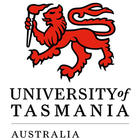Master of Laws
- Posted by University of Tasmania (UTAS)
- Home
- Courses
- University of Tasmania (UTAS)
- Master of Laws
Master of Laws
The Master of Research qualifies individuals who apply an advanced body of knowledge in a range of contexts for research and scholarships and as a pathway for further research. A research degree is an advanced study program that gives you an opportunity to deeply explore a topic of your choice…
Categories
COURSE DESCRIPTION
The Master of Research qualifies individuals who apply an advanced body of knowledge in a range of contexts for research and scholarships and as a pathway for further research.
A research degree is an advanced study program that gives you an opportunity to deeply explore a topic of your choice and the expertise of their supervisors. To find an expert in your field of interest, see the Web Access Research Portal (WARP) site.
Research degree candidates are driven by naturally inquiring minds, and have a passion to solve problems and advance humanity. A research degree allows you to conduct your own, unique research, and produce new knowledge and expertise that is innovative, relevant, and enlightened.
Research degrees equip graduates with the transferable skills and attributes necessary for challenging and diverse roles in industry, government and business, as well as in research and academic organisations.
At the University of Tasmania, a research degree is a true mark of endeavour, providing you with the training and skills necessary for a career in academia and beyond.
A Master of Research enables individuals to expand their breadth of knowledge and expertise in their chosen discipline.
The Degree provides candidates with advanced skills to carry out independent and sustained research. Candidates will be able to demonstrate specialist knowledge in the area of their research, present the results of their research in a publishable quality and demonstrate an understanding of, and commitment to, research ethics and codes of practice.
LLM degrees in the Faculty of Law are available in many different aspects of the law.
Areas of particular research expertise within the Faculty include: criminal law and criminology; law and ethics of healthcare and biotechnology; intellectual property law; administrative and constitutional law; environmental law; and various aspects of international law.
At the University of Tasmania candidates are encouraged to demonstrate academic leadership, increasing independence, creativity and innovation in their research and encouraged in the acquisition of a wide range of advanced and transferable skills.
REQUIREMENTS
A Bachelor Honours degree of at least second-class lower standard with a Minimum Research Component. A Master’s degree (Coursework) or Graduate Diploma with a Minimum Research Component.
IELTS (International English Language Testing Service – academic version) minimum overall score – 7.0 minimum additional scores No band less than 6.5; TOEFL (Internet-based Test of English as a Foreign Language) minimum overall score – 94 minimum additional scores Minimum 26 for writing and speaking, and 20 for reading and listening; PTE Academic (Pearson Test of English) minimum overall score – 65 minimum additional scores Minimum 65 for writing and speaking with no other score lower than 58.
EDUCATIONAL INSTITUTION
The University of Tasmania was officially founded on 1st January 1890 and is located at Sandy Bay, Tasmania. In addition to the main campus at Sandy Bay, it also operates out of the Newnham Campus and the Cradle Coast Campus. The most popular courses offered are the environmental studies that include wilderness management, marine sciences and indigenous studies in Tasmanian literature. Other unconventional courses include agriculture development, studies on the community and population and ocean study programs. The university also comprises of a Music Conservatorium, Art school and a School of Clinical studies.
The University of Tasmania was officially founded on 1st January 1890 and is located at Sandy Bay, Tasmania. In addition to the main campus at Sandy Bay, it also operates out of the Newnham Campus and the Cradle Coast Campus. The most popular courses offered are the environmental studies that include wilderness management, marine sciences and indigenous studies in Tasmanian literature. Other unconventional courses include agriculture development, studies on the community and population and ocean study programs. The university also comprises of a Music Conservatorium, Art school and a School of Clinical studies.




